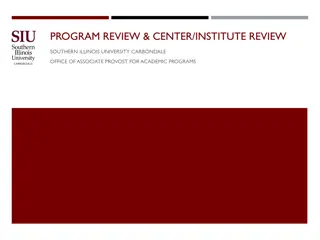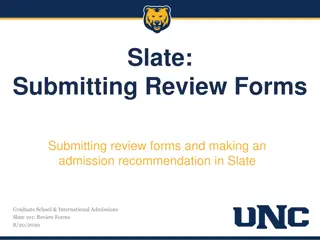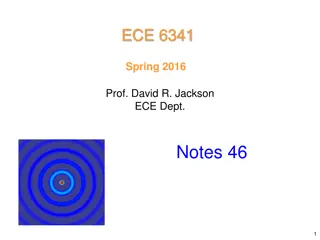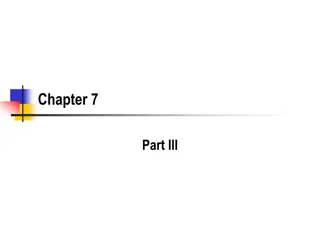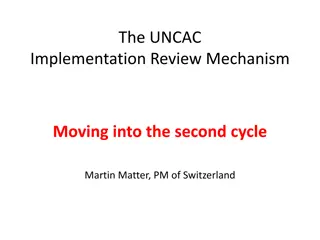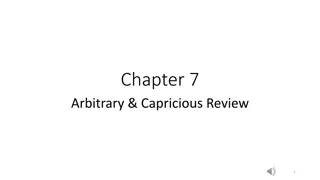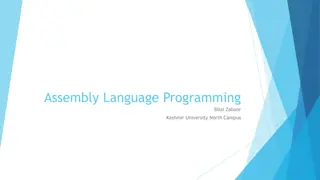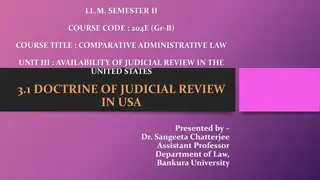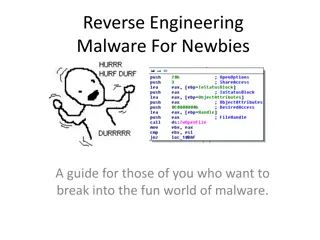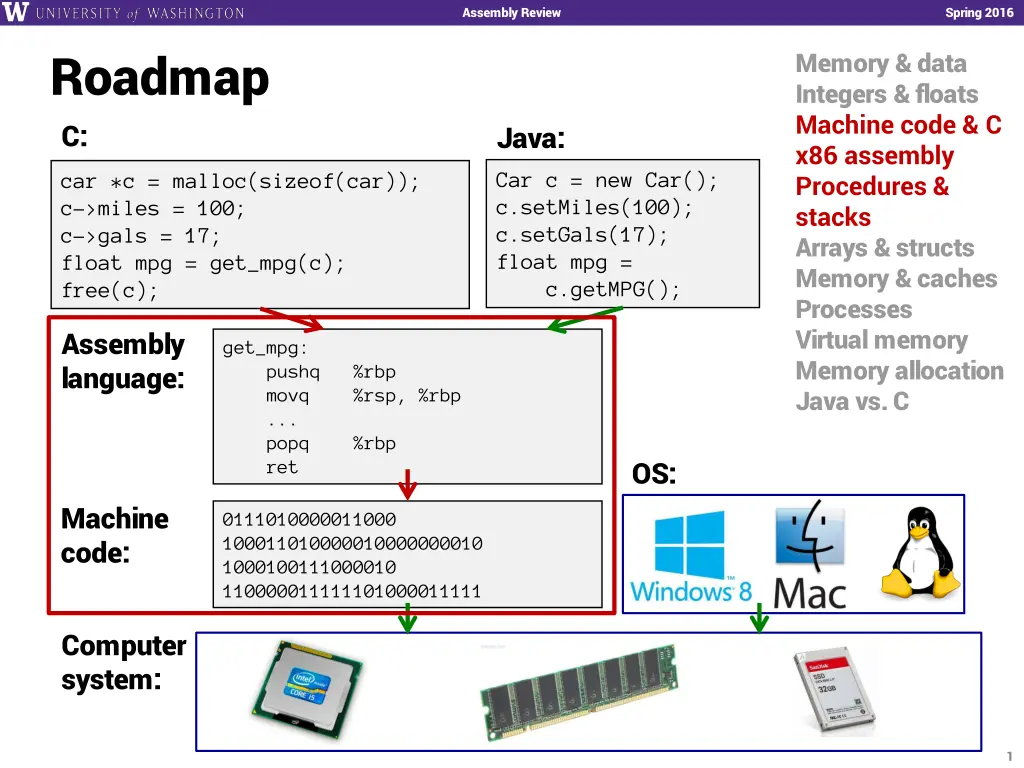
Review of Assembly Programming Concepts
Explore the fundamentals of assembly programming, covering topics such as memory allocation, data types, machine code, procedures, stacks, arrays, and more. Learn about the interaction between C and assembly languages, memory management, and the differences between Java and C programming. Dive into x86 assembly specifics, including registers, memory layouts, and programming conventions.
Uploaded on | 1 Views
Download Presentation

Please find below an Image/Link to download the presentation.
The content on the website is provided AS IS for your information and personal use only. It may not be sold, licensed, or shared on other websites without obtaining consent from the author. If you encounter any issues during the download, it is possible that the publisher has removed the file from their server.
You are allowed to download the files provided on this website for personal or commercial use, subject to the condition that they are used lawfully. All files are the property of their respective owners.
The content on the website is provided AS IS for your information and personal use only. It may not be sold, licensed, or shared on other websites without obtaining consent from the author.
E N D
Presentation Transcript
Assembly Review Spring 2016 Roadmap C: Memory & data Integers & floats Machine code & C x86 assembly Procedures & stacks Arrays & structs Memory & caches Processes Virtual memory Memory allocation Java vs. C Java: Car c = new Car(); c.setMiles(100); c.setGals(17); float mpg = c.getMPG(); car *c = malloc(sizeof(car)); c->miles = 100; c->gals = 17; float mpg = get_mpg(c); free(c); Assembly language: get_mpg: pushq %rbp movq %rsp, %rbp ... popq %rbp ret OS: Machine code: 0111010000011000 100011010000010000000010 1000100111000010 110000011111101000011111 Computer system: 1
Assembly Review Spring 2016 Assembly Programmer s View Procedures & The Stack Spring 2016 Procedures & The Stack Spring 2016 x86-64? 64-bit? Registers:? Usage? Conventions Memory CPU %rax %r8 Return? value? - Callersaved Argument? #5? - Callersaved Memory? Layout %rbx %r9 Callee saved Argument? #6? - Callersaved Addresses High Addresses %rcx %r10 Caller saved Argument? #4? - Callersaved %rdx %r11 Caller Saved Argument? #3? - Callersaved 2N-1 Registers %rdi Argument? #1? - Callersaved Code Data Stack %rsi %r12 Callee saved Argument? #2? - Callersaved Dynamic? Data (Heap) PC local? variables; procedure? context Stack %r13 Callee saved Data %rsp %r14 Stack? pointer Callee saved %rbp %r15 Callee saved Callee saved 57 Condition Codes Instructions Memory Addresses variables? allocated? with new or? malloc staticvariables (including? global? variables? (C)) Static? Data Programmer-Visible State PC: Program counter Address of next instruction Called instruction pointer (%rip) on x86-64 Named registers Heavily used program data Together, called register file Condition codes Store status information about most recent arithmetic operation Used for conditional branching Literals Large? constants? (e.g.,? example ) Instructions Low Addresses 0 6 Memory Byte addressable array Code and user data Includes Stack (for supporting procedures, we ll come back to that) 2
Assembly Review Spring 2016 x86-64 Instructions Data movement mov, movs, movz, ... Arithmetic add, sub, shl, sar, lea, ... Control flow cmp, test, j_, set_, ... Stack/procedures push, pop, call, ret, ...
Assembly Review Spring 2016 Turning C into Object Code Code in files p1.c p2.c Compile with command: gcc -Og p1.c p2.c -o p Use basic optimizations (-Og) [New to recent versions of GCC] Put resulting machine code in file p C program (p1.c p2.c) text Compiler (gcc Og -S) Asm program (p1.s p2.s) text Assembler (gcc or as) Object program (p1.o p2.o) Static libraries (.a) binary Linker (gcc or ld) Executable program (p) binary 4
Assembly Review Spring 2016 Machine Instruction Example C Code Store value t where dest points *dest = t; Assembly Move 8-byte value to memory Quad words in x86-64 parlance Operands: t: Register %rsi dest: Register %rdx *dest: Memory M[%rdx] movq %rsi, (%rdx) Object Code 3-byte instruction Stored at address 0x40059e 0x400539: 48 89 32 5
Assembly Review Spring 2016 Assembling Executable has addresses. Assembly has labels. pcount_r: movl $0, %eax testq %rdi, %rdi je pushq %rbx movq %rdi, %rbx shrq %rdi call pcount_r andl $1, %ebx addq %rbx, %rax popq %rbx .L6: rep ret 00000000004004f6 <pcount_r>: 4004f6: b8 00 00 00 00 mov 4004fb: 48 85 ff test 4004fe: 74 13 je 400513 <pcount_r+0x1d> 400500: 53 push %rbx 400501: 48 89 fb mov 400504: 48 d1 ef shr 400507: e8 ea ff ff ff callq 40050c: 83 e3 01 and 40050f: 48 01 d8 add 400512: 5b pop 400513: f3 c3 repz retq $0x0,%eax %rdi,%rdi .L6 assembler %rdi,%rbx %rdi 4004f6 <pcount_r> $0x1,%ebx %rbx,%rax %rbx gcc -g pcount.c o pcount objdump -d pcount gcc -S pcount.c 6
Assembly Review Spring 2016 A Picture of Memory (64-bit view) A 64-bit (8-byte) word-aligned view of memory: In this type of picture, each row is composed of 8 bytes Each cell is a byte A 64-bit pointer will fit on one row (note hex addresses) 0x00 0x01 0x02 0x03 0x04 0x05 0x06 0x07 0x00 0x08 0x10 0x18 0x20 0x28 0x30 0x38 0x40 0x48 0x0C 0x0D 0x0E 0x0F 0x08 0x09 0x0A 0x0B 7
Assembly Review Spring 2016 A Picture of Memory (64-bit view) 00000000004004f6 <pcount_r>: 4004f6: b8 00 00 00 00 4004fb: 48 85 ff test 4004fe: 74 13 je 400513 <pcount_r+0x1d> 400500: 53 push %rbx 400501: 48 89 fb mov 400504: 48 d1 ef shr 400507: e8 ea ff ff ff callq 40050c: 83 e3 01 and 40050f: 48 01 d8 add 400512: 5b pop 400513: f3 c3 repz retq mov $0x0,%eax %rdi,%rdi %rdi,%rbx %rdi 4004f6 <pcount_r> $0x1,%ebx %rbx,%rax %rbx 0|8 1|9 2|a 3|b 4|c 5|d 6|e 7|f 0x00 0x08 0x10 ... ... b8 00 0x4004f0 Just For Fun This call actually uses a relative address: ea ff ff ff = -22 (little endian) 00 00 00 48 85 ff 74 13 0x4004f8 53 48 89 fb 48 d1 ef e8 0x400500 ea ff ff ff 83 e3 01 48 0x400508 01 d8 5b f3 c3 0x400510 8





